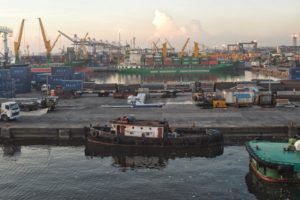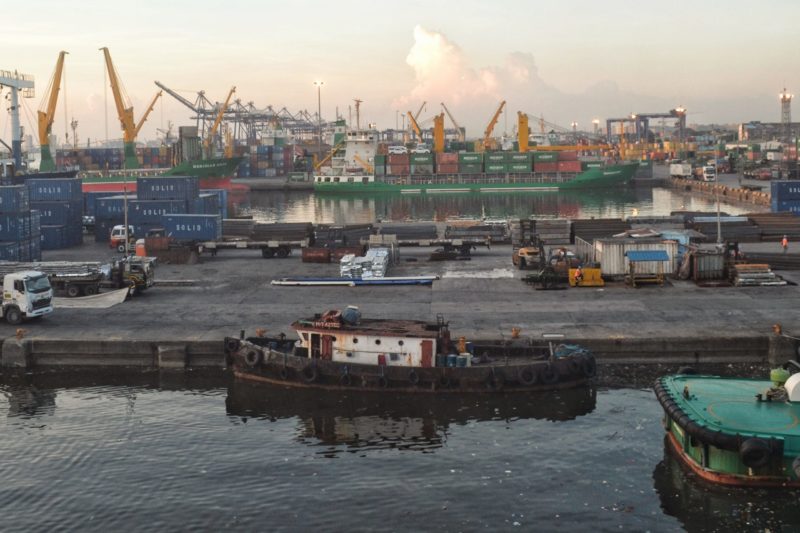
Domestic shipping organizations renewed their appeal to include domestic shipping in the coverage of public utilities under the bill amending the Public Service Act (PSA). Excluding domestic shipping from the bill would open it up to 100% foreign ownership.
The Philippine Inter-island Shipping Association (PISA) and Philippine Liner Shipping Association (PLSA), in letters dated June 1 to various lawmakers and Executive Secretary Salvador Medialdea, Defense Secretary Delfin Lorenza, and the Presidential Legislative Liaison Office, sought support in retaining foreign ownership restriction for domestic shipping by including the industry in the coverage of public utilities.
The House of Representatives (HOR) on March 10 approved on third and final reading House Bill (HB) No. 78, which seeks to amend the definition of public service under Commonwealth Act No. 146, otherwise known as the PSA.
HB 78 limits the definition of public utility to any person or entity that operates, manages, or controls for public use the distribution of electricity, transmission of electricity, water pipeline distribution, and sewerage pipeline. It excludes transportation, telecommunications, broadcasting, and other public services from being defined as public services.
If passed into law, the bill would effectively allow 100% foreign ownership in the excluded industries, as these services would no longer be considered public services or be covered by the 60%-40% ownership principle under the Constitution.
PISA and PLSA said foreign ownership restrictions should be retained on ships, together with seaports, airplanes, airports as they are “critical infrastructure bridging and linking our islands.”
The Senate version of the bill remains pending at the committee level.
In an August 31, 2018 response letter to PISA chairman and president Christopher Pastrana, Lorenzana said the Department of National Defense (DND) “supports your move for the inclusion of ‘shipping’ in the enumeration of industries falling under the definition of public utility” in bills seeking the amendment of the PSA.
DND had also endorsed Pastrana’s letter to Senator Grace Poe, chairperson of the Senate Committee on Public Services, “to seek her support for possible inclusion of shipping industry in the enumeration of public service utilities in the Senate version of the amendatory bill.”
Aside from national security, PISA and PLSA noted that the shipping sector has “continued to serve the people’s needs during the COVID-19 pandemic notwithstanding massive losses because of our commitment and sense of patriotic duty to our country.”
“This is precisely why most coastal countries in the world have nationality requirements—to ensure that critical infrastructure like shipping can be counted on in times of crisis. As such, to allow foreign ownership of ships would deprive us of the ability to fully protect our country in times of war, natural disasters, crisis and national emergencies,” the associations pointed out.
PISA and PLSA for years have been asking Congress to retain domestic shipping as a public utility for a number of reasons.
READ: PISA renews call against 100% foreign ownership in domestic shipping
In a letter last March to House Speaker Alan Peter Cayetano, deputy House Speaker Ferdinand Martin Romualdez, and Committee on Economic Affairs chairman Sharon Garin and vice chairman Joey Salceda, PISA said domestic shipping “is a strategic industry considering the archipelagic nature of the country.”
PISA said the Philippine shipping industry is an important contributor to national security in times of national disasters, response and reconstruction, potential conflict over the West Philippine Sea or war, smuggling, drugs, illegal fishing, and piracy.
More than 80% of all cargoes are transported through ships and allowing “100% foreign ownership of domestic shipping will result (in) foreign domination of the coastwise trade,” it said.
PISA explained that because the Philippines is an archipelago, “alien control of inter-island navigation means economic control and domination of our economy by alien hands whose commitment to the trade is highly suspect.”
“In times of political instability in any country, foreigners will most likely leave and wait for better times before coming back. This happened during the 1980’s after the assassination of Ninoy Aquino, continuing in the early years of the Cory Aquino-administration, only to come back during the Ramos-administration when the political situation stabilized,” PISA pointed out.
PISA said removing transportation from the coverage of public utility “will have the effect of complete deregulation of all modes of public transport.”
The group also said “there is more than enough competition in the domestic shipping industry.”
In 2003, The Strong Republic National Highway was inaugurated, prompting the entry of many new players in the short- and long-haul routes of the domestic trade.
In 2004, Republic Act No. 9295, or the Domestic Shipping Development Act of 2004, was enacted, which deregulated the liner sector and allowed newcomers into the trade.
“As a result, domestic shipowners fiercely compete against each other with services which require investments in ships, containers, container yards and warehouses, trucks, chassis, software, and land based equipment in some cases in ports and shore cranes and equipment,” PISA said.
Moreover, PISA said foreign ownership of public transport is not a guarantee of lower transport cost.
“Opening up transportation to foreign competition will not bring down domestic transport costs so long as foreign corporations will be subjected to the same operating conditions as domestic transport operators,” PISA said.
It explained that the relatively higher cost of freight in the country is due to the low volumes of trade, north-south trade imbalances, lack of clustering policies and strategies, bad production practices that prevent comingling of cargoes for bulk shipping, and poor port infrastructure, all resulting in smaller ships that need their own cranes.
In an earlier position paper submitted to the Lower House, PISA said that “high cost of operation plus higher taxes and higher regulatory fees are among the factors that contribute to the high transport cost in the domestic trade.”
Removing transportation from the coverage of public utility will render all modes of public transport as “private carriers,” which will remove the protection given to the commuting public under existing laws, PISA added.
All modes of public transport are considered “common carriers,” governed by the common-carrier provisions of the Civil Code and thus, “are bound to observe extraordinary diligence in the vigilance over the goods and for the safety of the passengers transported by them, according to all the circumstances of each case.”
The duty to be extraordinarily diligent in being vigilant over goods and passengers renders common carriers liable under virtually all circumstances in the event of damage or loss to the goods, or injury to or death of passengers.
PISA said removing this protection by converting all modes of public transport into private carriers will enable private carriers to avoid liability.
And as private carriers, they are no longer required to provide mandatory insurance for cargo and passengers, leaving the riding public uncompensated for damages in the event of financial incapability of the transport operators. – Roumina Pablo





